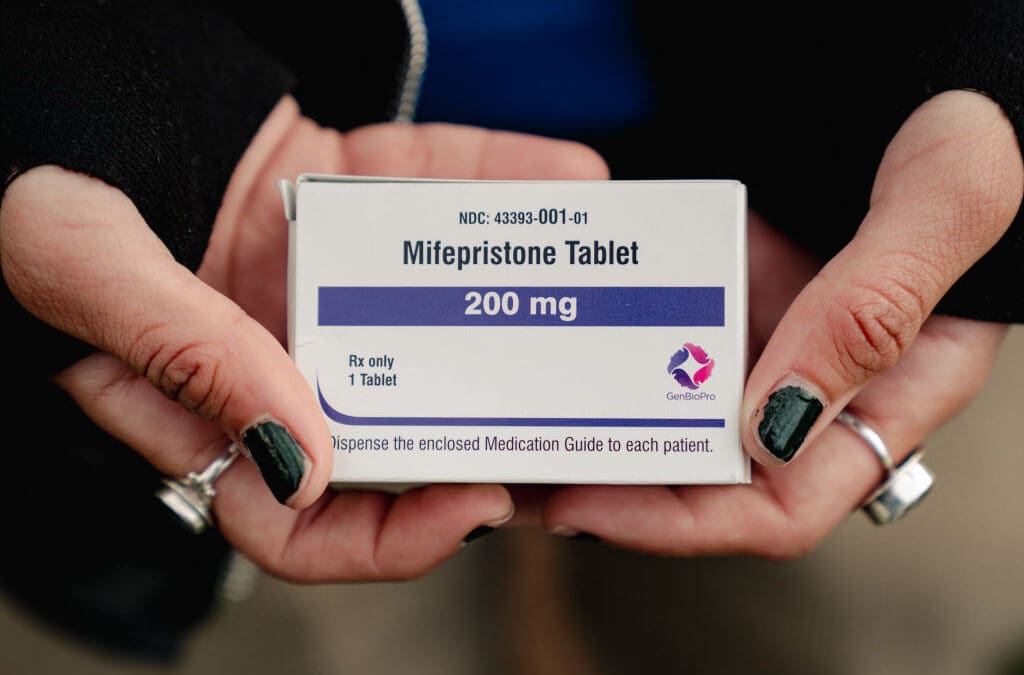
Trump’s Fans Are Turning on His Lawless Orders
April 9, 2025
The Damage Can’t Be Undone
April 9, 2025In the wake of the Dobbs decision and under the current Trump administration, finding safe and legal solutions to prevent unwanted pregnancies is more urgent than ever.
In the summer of 1971 in Bangladesh, over 250,000 women and girls were tortured and raped by the Pakistani military. Faced with the trauma of war, sexual assault, and an unwanted pregnancy, many victims killed themselves or their newborn babies.
While abortion in Bangladesh was illegal for some time, the government enacted a new family planning policy in 2020 to permit “menstrual regulation.” This policy allowed women to safely end a potential pregnancy up to 10 weeks after their last period, but only in the absence of a pregnancy test. With no evidence of a pregnancy, there would never technically be a recorded abortion.
Menstrual regulation, or bringing back a missed or late period, is a common cultural practice across the globe, including the United States. It typically involves using “period pills,” such as mifepristone and misoprostol, to induce a period, and can be practiced legally in countries where abortion is illegal, like Bangladesh and Cuba. Offering a method to manage menstrual cycles openly grants reproductive autonomy, without shame or taboo. Critically, menstrual regulation is not viewed as an abortion, even mifepristone and misoprostol are involved.
When a young Peruvian woman was questioned about her experience using misoprostol to bring back her period, she replied, “What I did was regulate my period. I’m not going to accept that I’ve had an abortion because if I had been three or four months along, then I would have felt bad.… But, I don’t feel that way because I was barely a month pregnant. What I did was simply regulate my period, nothing more.”
Menstrual regulation has been practiced in the United States for centuries. However, the politicization of abortion has pushed the practice to the fringes. In 17th century America, women would often take herbal remedies to bring down a missed period. By the 19th century, however, male physicians had become the dominant reproductive health authorities. These men blamed midwives for the “immoral” act of abortion, leading to the criminalization of the procedure.
What I did was simply regulate my period, nothing more.
A young Peruvian woman who used misoprostol to bring back her period
Furthermore, with the invention of the pregnancy test in the 20th century, pregnancy became a “yes/no” binary, rather than an evolving state. Due to these cultural frameworks, any method to end a pregnancy in the United States is seen as an abortion. And in the wake of Dobbs, the stakes of an abortion threaten incarceration for the pregnant individual or anyone who helps them.
But would those stakes remain in the absence of a pregnancy test?
Joanna Erdman, a professor of Health Law and Policy at Dalhousie University, is currently looking into this idea. Erdman says, “Abortion laws are premised on this idea that there’s an absolute categorical difference between terminating a pregnancy and preventing one. But the truth is that this line was never very clear because pregnancy isn’t this definitive moment.”
This liminal space is a point of opportunity. For example, within this time frame, 10 to 20 percent of pregnancies end in miscarriage. So rather than draw a hard line between pregnant and not pregnant, perhaps we should embrace the ambiguity at the start of a pregnancy to provide people with options. If they don’t want to be pregnant, they can simply take medication to bring their period back.
One U.S.-based study conducted in 2020 found that 70 percent of individuals who did not want to get pregnant would rather take period pills than a pregnancy test. When surveyed, one participant wrote, “It would be easier on my emotional well-being to not know I was actually pregnant but to alleviate the issue which is my missed period.” Researchers after the study concluded that “if such a service were available, demand could be substantial.”
Today, mifepristone and misoprostol in the United States for the purpose of menstrual regulation are relatively accessible. Organizations such as Period Pills connect individuals with menstrual regulation providers, while the Period Pills Fund covers the cost of the medication for those who cannot afford it. The National Working Group on Period Pills has been advocating for the promotion of menstrual regulation in the United States since 2019. They’ve aptly compared the practice to taking emergency contraception after unprotected sex, or even anti-malarial pills after traveling to a malaria-endemic area. Study after study has proved that period pills are safe, effective, and can relieve the mental burden of unwanted or unplanned pregnancy.
Some pro-abortion activists have critiqued menstrual regulation as playing into existing anti-abortion stigma. This is fair. In an ideal world, access to an abortion should be easy, safe, and unbiased. In that world, an individual would not need a legal alternative to an abortion. However, that world does not currently exist. The criminalization of abortion in the United States has created significant barriers to care, resulting in massive reproductive health deserts.
Yes, menstrual regulation is a “Band-Aid” solution for this increasingly conservative moment. But in our current circumstances, perhaps a Band-Aid can save a life.
In the wake of the Dobbs decision and under the current Trump administration, finding safe and legal solutions to prevent unwanted pregnancies is more urgent than ever. Two in five individuals live in states where abortion is restricted or illegal. Several people in those states, such as Amber Thurman, have already died while trying to access reproductive care.
Rather than waiting for the arc of the moral universe to bend towards justice, we must ask how we currently can provide care to someone who needs an abortion in today’s circumstances. In many cases, menstrual regulation could be the answer.
Despite such promise, there are key obstacles facing the promotion and provision of missed-period pills in the United States. Most of them come from the anti-abortion movement. In Louisiana, a recent law was passed to reclassify the medications as Schedule IV, which made it a crime punishable by up to five years in prison to possess the drugs without a prescription. More extremely, the Ending Chemical Abortions Act of 2023, if passed, would make the prescription and distribution of the medications punishable by up to 25 years in prison. Dr. Maggie Carpenter, a family practice physician in New York, has been fined by Texas and charged with a felony by Louisiana for prescribing abortion pills to a minor.
In 1971, Bangladesh chose to protect the reproductive autonomy of women by legalizing menstrual regulation. The United States can do the same. By promoting menstrual regulation for those in states where abortion is illegal, we can ensure everyone has access to the healthcare they need. And we can save lives.
Great Job Naomi Michelson & the Team @ Ms. Magazine Source link for sharing this story.





